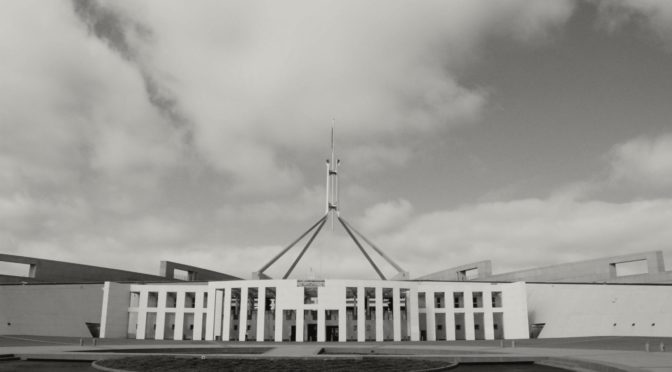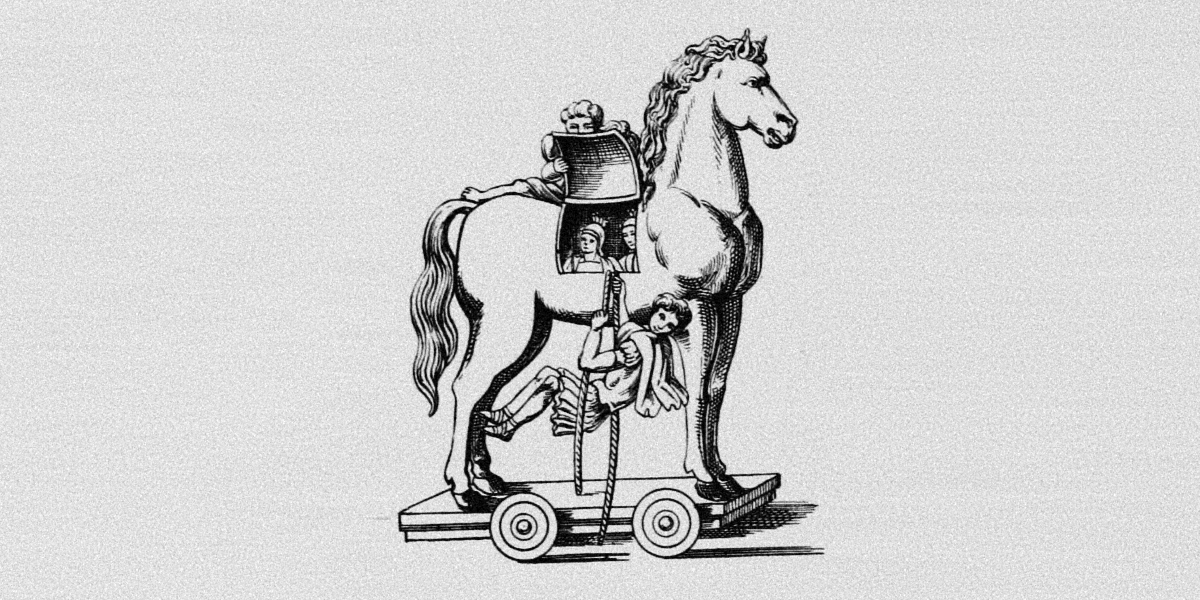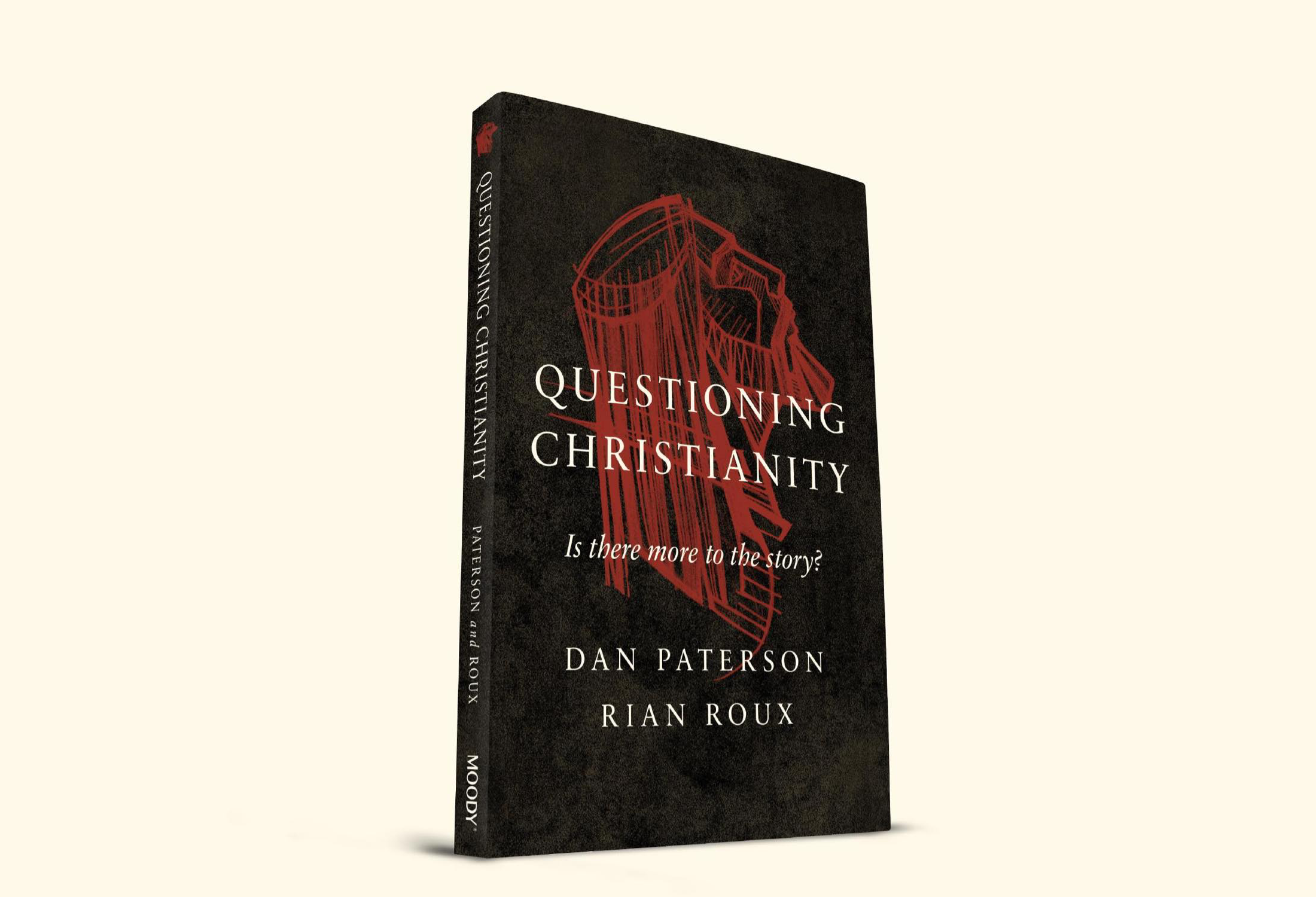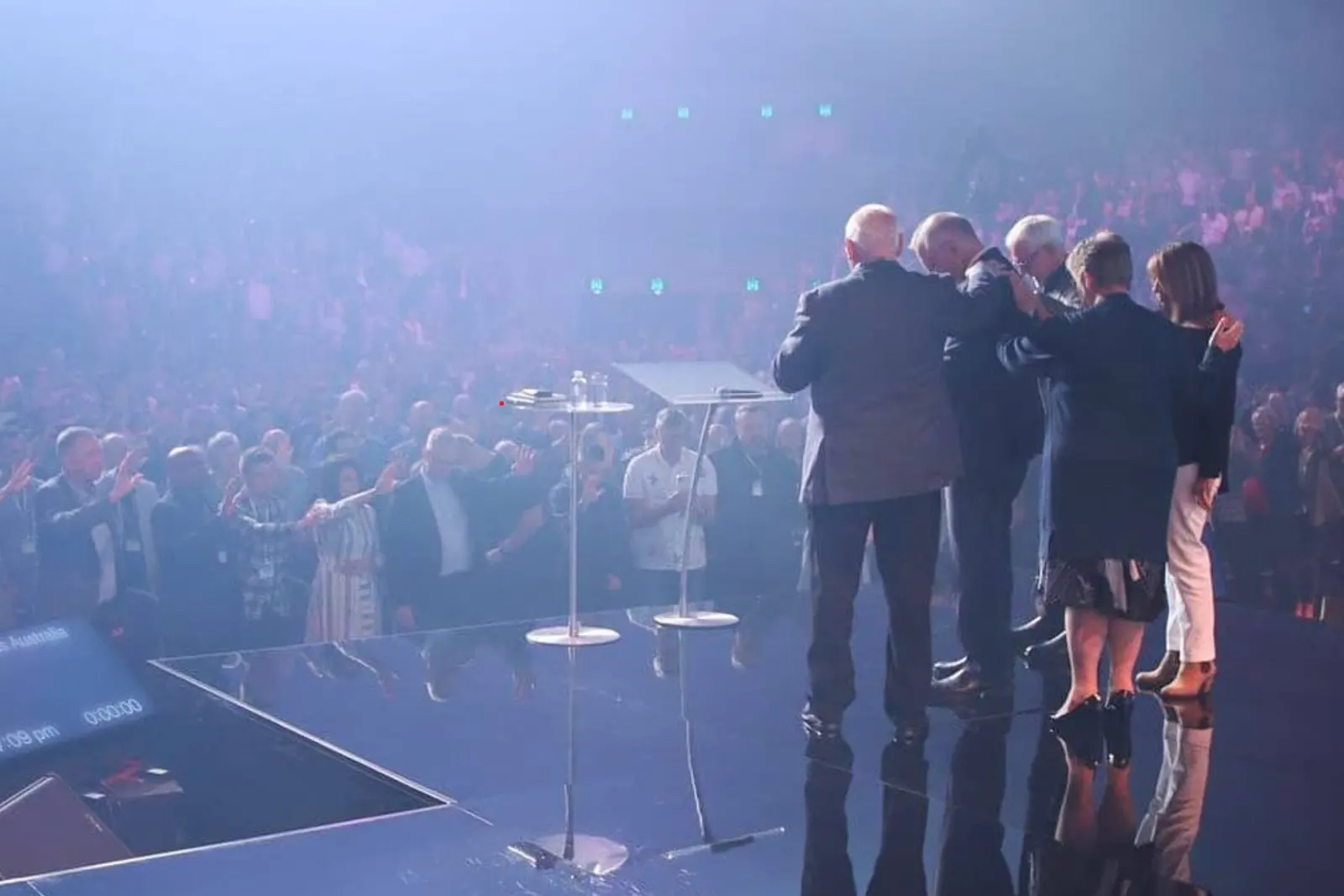First there was the dress.
Then there was Laurel/Yanny.
Now there’s the decision of the Special Assembly of the Presbyterian Church’s General Assembly of Australia that met yesterday to discuss vaccines and public worship.
Eternity News has reported a version of events (and the decision) from yesterday’s meeting that does not align with my perception of the meeting, or its decision, in a variety of ways, and nor does it align with the perception of others. And yet, there can be no doubt that all the parties left the meeting yesterday perceiving the object of the meeting in different ways — such that we all left reasonably satisfied, and committed to the courses of action and positions we took into the meeting.
I’ve been in contact with the editor of Eternity, and am aware that the source quoted in the piece, one of the movers of the original motions voted on, is likely to have been his interpretive guide regarding the decision of the Assembly and its implications.
So. To set the record straighter, inasmuch as that was possible with Laurel and the blue dress…
Here’s my understanding of the meeting, the decision, and its implications. General Assemblies of Australia are conducted in open court, unless otherwise determined, and so the substance of this meeting is public.
As Eternity reports, Mark Powell and Darren Middleton brought what is called an ‘overture’ to a special assembly that was called by a group of ministers and elders from around the country. It should be acknowledged that both these gentlemen are fully vaccinated, believe the vaccines to be a reasonable response to the Covid pandemic, believe the pandemic to be serious enough to require government interventions (including social distancing), and are more concerned about the prospect of excluding healthy (though unvaccinated) people from a community gathering when those people do not pose a risk to the vaccinated but to other unvaccinated people (and where the vaccinated people who might carry non-symptomatic Covid are a risk to the unvaccinated). Their point was that risk management responsibilities are complex, and our general principle should be not to exclude healthy people from worship services and their original motions were supportive of the idea that unwell people should continue to be excluded from the gathering.
The first step in proceedings was establishing that the Moderator of the GAA had competently called a meeting — under the Basis of Union of our federated church, the GAA is responsible for matters of doctrine and public worship. It was the contention of the movers of the overture that this matter relates to both doctrine (around areas of church and state and Christian liberty) and public worship (questions of who should be included in gatherings around word and sacrament). Others had doubts about the competency of the motion and whether the question was one of doctrine and worship — where there is broad agreement on the principles — or governance and wisdom/prudence at a local level (best left in the hands of the State Assemblies and local sessions and Committees of Management (bodies of elders and managers). Because the movers of the motion were determined to keep the question at the ‘principial’ level rather than mandating particular actions/requirements for state and local bodies (noting that different states will have different legal frameworks and health situations), the assembly voted that it did indeed have capacity to make declarations at the general principal level — but whether it would’ve been competent to be more directive to local congregations was not on the table (and would, I suspect, have been an area of more contention).
The original overture from the movers used language that concerned many of us — and that was the subject of revision and debate. There is no doubt that for some of the people in the Zoom, the implications of the language being used were those suggested in the Eternity piece, but such implications were not for this court to decide, nor could the court make such decisions under its remit/authority (nor could it given that every state will have different legislative frameworks to navigate).
Some of the preamble to the Overture read:
- “It would appear to be inevitable that, when lockdowns are lifted, unvaccinated persons, both Presbyterians and visitors, will seek to join in public worship and other church activities.
- Vaccine certificates (passports) are now being considered by governments and business operators so that access to services, buildings or public places may be granted or denied depending on a person’s vaccination status, raising the potential for societal segregation.
- As people struggle to maintain both liberty and love, the unequal treatment of vaccinated and unvaccinated people and the implications of vaccine passports may become divisive and threaten the unity of the Church, especially if State governments require vaccine certificates (passports) for attendance at religious gatherings.
Some of the arguments around the exclusion of unvaccinated people made this not so much an issue of conscience but of two classes of people — like the Jew/Gentile distinction in the first century church, where Jesus did indeed remove the dividing wall of hostility. I am not convinced by that line of argument, personally, and think that if there’s a New Testament principle to apply it’s the stronger/weaker brother principle around food sacrificed to idols (and other matters Paul applies this principle to); and I’m not convinced that all vaccine hesitancy is equal; some of it is the result of diabolical twisting of scriptures and misinformation campaigns — and we’re meant to be people of truth (see, for example, the way people are making comparisons between vaccine passports and the mark of the beast in Revelation). That said, I do think there is a conscience issue here that is worth grappling with in the context of our spiritual union with Christ and the way we express that in gathering as people.
The three original points of the Overture read:
- Exhort all members and ministers to work hard at maintaining the unity of the Spirit in the bond of peace, treating issues of vaccination as a matter of liberty of conscience not determined by church law (Rom. 14:22, 15:4; WCF chapter 20).
- Declare that in light of the Bible’s teaching on the free offer of the gospel and the unity of the Church that no Presbyterian Church should deny entry to unvaccinated people for the public worship of God (Matt. 28:19-20; Gal.3:28; Jas.2:1-3; John 17:21-23).
- Remind all leaders and members of our churches of their obligation to love their neighbours and therefore, voluntarily and willingly, to use all reasonable methods of preventing the spread of disease, including self-isolating for the appropriate period if they show any symptoms of an infectious disease or have a positive COVID result, even if asymptomatic.
The original language was so concerning to many members of the virtual (or Spiritual) house that an alternative notice of motion was prepared. The process in our courts is that the Overture is stated, and received — in order to be debated — and then the court of the church will determine its mind.
I had incredibly strong reservations about clause 2 in the overture — specifically around the language of ‘declare’ (which is a technical word that actually carries less weight than other imperatives, like “instruct”) and “no church should” which again, was framed as weaker language than “must not”…), even if the discussion was designed to be at the ‘principial level’ rather than at the ground level around mandating of certain behaviours. I was quite uncomfortable with this language, and was (evidently) not alone.
The overture was received in order to be debated — as the Eternity report indicates this was by a strong majority. This does not mean that a strong majority supported it in this form, but that the Assembly decided it was worth discussing not simply dismissing. The vast majority of the house seemed to think this was a good idea, although, this was perhaps because an alternative set of motions had been circulated and it was anticipated these might be adopted as ‘counter motions’ that better expressed the will of the house — and expressed a view consistent with a reformed understanding of Government; where we understand that the Government is provided by God and that public health is within the ‘sphere’ that governments are responsible for such that their public health orders are legitimate expressions of God given authority.
The alternative option presented in the documents for the Assembly (but not ultimately debated or voted on) was going to ask the GAA to:
Acknowledge that:
- public health is a proper function of the civil authority;
- churches are to submit to the civil authorities established by God, and to resist such authority is to resist what God has appointed and to be liable to judgment (Romans 13:1-2), unless submission to the civil authority intrudes upon the spiritual independence of the church and the obedience otherwise due to God;
- vaccination policy and vaccine passports are public health matters under the jurisdiction of the civil authority;
- according to expert health advice, vaccinated persons are less likely than unvaccinated persons to contract COVID-19 themselves or to transmit it;
- the sixth commandment requires all lawful endeavours to preserve our own life and the lives of others, therefore congregations are obligated to ensure, as far as practicable, the safety of all who assemble for corporate worship and other church activities.
Encourage the State Churches to:
- cooperate with their respective State governments by observing their lawful directions in regard to COVID- Safe measures, including the use of vaccine passports;
- negotiate with their respective State governments with a view to obtaining alternatives to vaccination that would allow persons who should not be vaccinated for medical reasons or those who for, reasons of conscience, are unwilling to be vaccinated, to join with vaccinated congregants in worship;
- assure their members who for reasons of conscience are unwilling to be vaccinated at this time that their right to defer or reject vaccination is respected;
- encourage their congregations to foster the unity and peace of the church by seeking to make appropriate provision for both vaccinated and unvaccinated congregants to join in church activities, including corporate worship, without breaching public health orders.
Given the choice between the two options — the Overture and the counter motion, I have some sympathies with the desire to include those who are vaccine hesitant, recognise the issues of conscience/freedom are important principles to maintain, and some sympathies with the government’s responsibilities to protect the vulnerable and manage a complex public health system (and economy), and note that almost no government that I can see thinks vaccine passports are a long term solution in Australia (but are part of protecting/managing the health system through the pandemic), so it’s probably I’d have voted for the second option had the motions in the overture not been substantially altered. The Queensland Government advised a heads of churches meeting last week that it has no intention of introducing anything like vaccine passports for church services, which certainly was both a comfort to me as I considered my response, and perhaps serves as an indication that some of the fears around vaccine passports are a product of fake news and scare campaigns (I’m looking at you Caldron Pool). I recognise that the landscape is different in Victoria, and to some extent, in New South Wales.
I was concerned that clause 2 of the original overture might provide a pathway to civil disobedience should state assemblies, or local churches, decide that government restrictions were an overreach on their sphere sovereignty — so found myself more in agreement with the political theology expressed in the second.
Personally, my absolute preference would’ve been for the GAA not to feel like it needed to say anything at all here, but rather to trust that our doctrines are clear and that states and local congregations are best positioned to shepherd their own communities through this situation. Part of the ‘politicisation of everything’ has left us feeling that we need official ‘black and white’ statements of law to guide us through decision making; I’m not sure that allows us to be nuanced or nimble enough to operate in these times. I think we also run the risk of being caught up in political posturing and polarised agendas of our day in ways that suck us in to ways of thinking and operating in the world that are unhelpful — whether that’s putting all our eggs in the ‘individual freedom’ basket of the right, or in the ‘systemic/public health’ thinking of the left. I’m inclined to think that vaccine hesitant people need to spend more time thinking about public health concerns and systems of relationships (systems thinking stuff), while people on the right need to think more about risk management and government overreach.
As it panned out the counter motions were not needed because a series of amendments deliberately left the original overture with a fairly weak ‘motherhood and apple pie’ principial expression. Attempts to shift the language back to firmer more imperative language than ‘desire’ — even the word ‘intend’ — were rejected by the house, which ultimately adopted an altered version of clause 2 of the overture and used the mechanism to ‘move the previous question’ to eradicate all expressions of the proposed clause 3 (after some discussion about whether we might include vaccination as a legitimate measure for limiting the spread of Covid 19 — something that the movers of the Overture were happy to support (and that I believe was sensible). Basically the court served to turn the overture into a statement that everyone walked away agreeing with because it says basically nothing substantial that can be applied in any particular direction in this pandemic. Of course we all desire that people be able to attend church, that is, of course, our core business — inviting people to worship Jesus as we gather together to proclaim the Gospel.
Here’s the final wording of what was adopted:
- Exhort all members and ministers to work hard at maintaining the unity of the Spirit in the bond of peace, treating issues of vaccination as a matter of liberty of conscience not determined by church law (Rom. 14:22, 15:4; WCF chapter 20).
- Affirm that in light of the Bible’s teaching on the free offer of the gospel and the unity of the Church, the Presbyterian Church of Australia does not desire anyone [to] be denied entry for the public worship of God on the grounds of vaccination status.”
It’s evident that this is the case because once the amended wording of the overture was adopted, the movers of the alternative no longer saw their motions as necessary.
The reporting in Eternity represents one view of the outcome — a legitimate view because the outcome is so open to interpretation, but not, in any sense, a definitive view of the implications of the principles decided — and some of the suggested implications are only ‘a’ potential implication rather than ‘the’ necessary (or even likely) implication of the principles agreed by all.
And so: the dress is blue (seriously, use a colour dropper tool in photo shop), the word is laurel, and Presbyterians remain Presbyterian in all our beautiful dysfunction.










 It’s a surprisingly effective tool, that adequately solves many of the problems, but it’s a very blunt instrument, and the tester is maybe looking for a little more.
It’s a surprisingly effective tool, that adequately solves many of the problems, but it’s a very blunt instrument, and the tester is maybe looking for a little more.